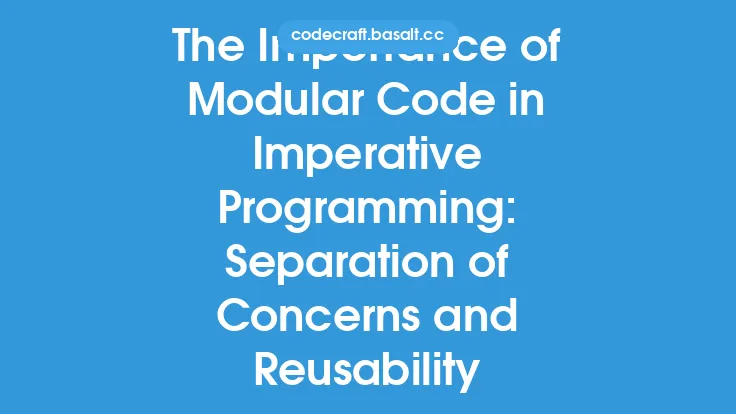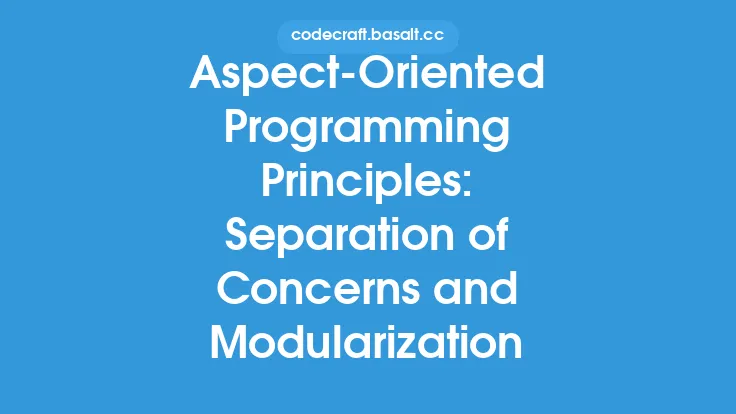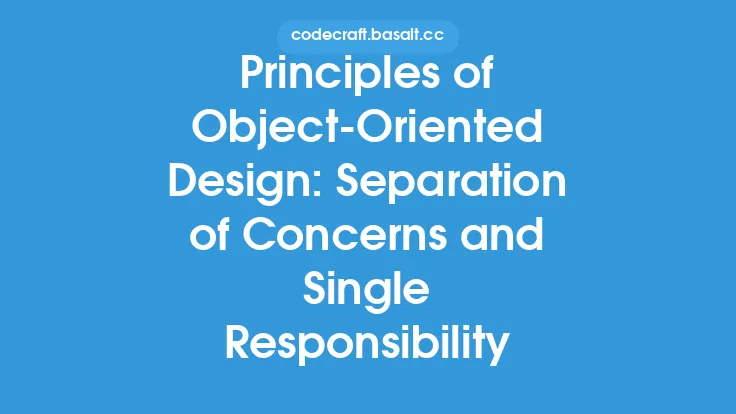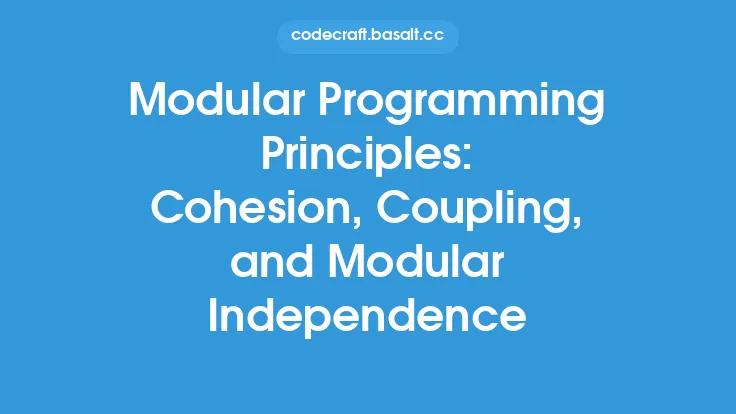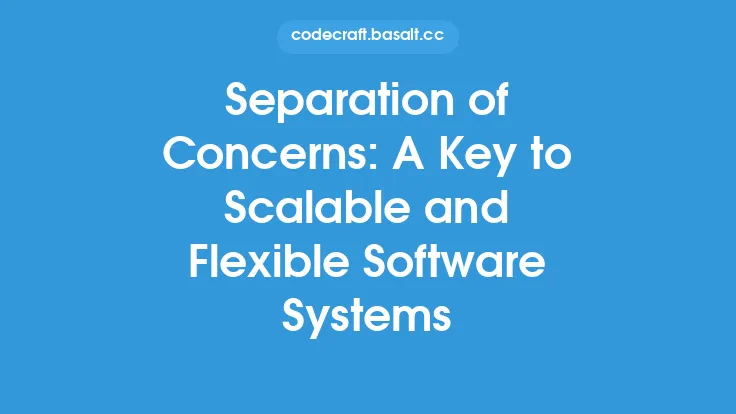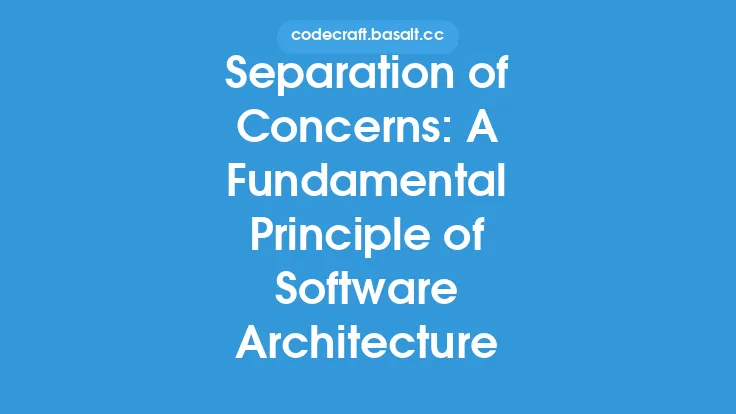Declarative programming is a paradigm that focuses on specifying what the program should accomplish, rather than how it should accomplish it. This approach has several key principles that enable developers to write efficient, readable, and maintainable code. At the heart of declarative programming are three fundamental principles: separation of concerns, abstraction, and composition. These principles work together to provide a robust foundation for declarative programming, allowing developers to create complex software systems that are easy to understand and modify.
Separation of Concerns
Separation of concerns is a principle that involves dividing a program into distinct sections, each of which handles a specific aspect of the program's functionality. This separation makes it easier to modify and maintain individual components without affecting the rest of the program. In declarative programming, separation of concerns is achieved through the use of pure functions, which are functions that have no side effects and always return the same output given the same inputs. Pure functions make it easier to reason about the behavior of a program, as their output is determined solely by their inputs. By separating concerns into distinct functions, developers can create programs that are more modular, reusable, and composable.
Abstraction
Abstraction is another key principle of declarative programming. Abstraction involves hiding the implementation details of a component or function, exposing only the necessary information to the outside world. This allows developers to change the implementation of a component without affecting the rest of the program, as long as the interface remains the same. In declarative programming, abstraction is often achieved through the use of higher-order functions, which are functions that take other functions as arguments or return functions as output. Higher-order functions enable developers to create abstract representations of computations, which can be composed and reused to solve complex problems.
Composition
Composition is the third fundamental principle of declarative programming. Composition involves combining smaller components or functions to create more complex ones. In declarative programming, composition is often achieved through the use of function composition, which involves creating new functions by combining existing ones. Function composition enables developers to create complex functions from simpler ones, making it easier to reason about the behavior of a program and create reusable code. Composition also enables developers to create modular programs, where each component is a self-contained unit that can be easily replaced or modified without affecting the rest of the program.
The Interplay Between Principles
The principles of separation of concerns, abstraction, and composition are interconnected and interdependent. Separation of concerns enables developers to create modular components that can be easily composed to create more complex programs. Abstraction enables developers to hide the implementation details of these components, making it easier to change or replace them without affecting the rest of the program. Composition enables developers to create complex programs from simpler components, making it easier to reason about the behavior of a program and create reusable code. By combining these principles, developers can create declarative programs that are efficient, readable, and maintainable.
Technical Implementation
From a technical perspective, declarative programming principles can be implemented using a variety of programming languages and techniques. For example, functional programming languages such as Haskell and Lisp provide built-in support for pure functions, higher-order functions, and function composition. These languages also provide a range of libraries and frameworks that make it easier to implement declarative programming principles in practice. In addition, many imperative programming languages, such as Java and C++, provide functional programming features that can be used to implement declarative programming principles. By using these features and techniques, developers can create declarative programs that are efficient, readable, and maintainable, regardless of the programming language or paradigm they are using.
Benefits and Advantages
The principles of declarative programming provide a range of benefits and advantages, including improved code readability, maintainability, and scalability. By separating concerns, abstracting away implementation details, and composing smaller components to create more complex ones, developers can create programs that are easier to understand and modify. Declarative programming also enables developers to create more efficient programs, as the focus is on specifying what the program should accomplish, rather than how it should accomplish it. This approach also makes it easier to optimize programs, as the implementation details can be changed without affecting the rest of the program. Overall, the principles of declarative programming provide a robust foundation for creating efficient, readable, and maintainable software systems.
Conclusion
In conclusion, the principles of separation of concerns, abstraction, and composition are fundamental to declarative programming. These principles enable developers to create efficient, readable, and maintainable code, and provide a range of benefits and advantages, including improved code readability, maintainability, and scalability. By understanding and applying these principles, developers can create declarative programs that are easy to understand and modify, and that can be optimized and improved over time. Whether you are working with functional programming languages or imperative programming languages, the principles of declarative programming provide a robust foundation for creating complex software systems that are easy to understand and maintain.
